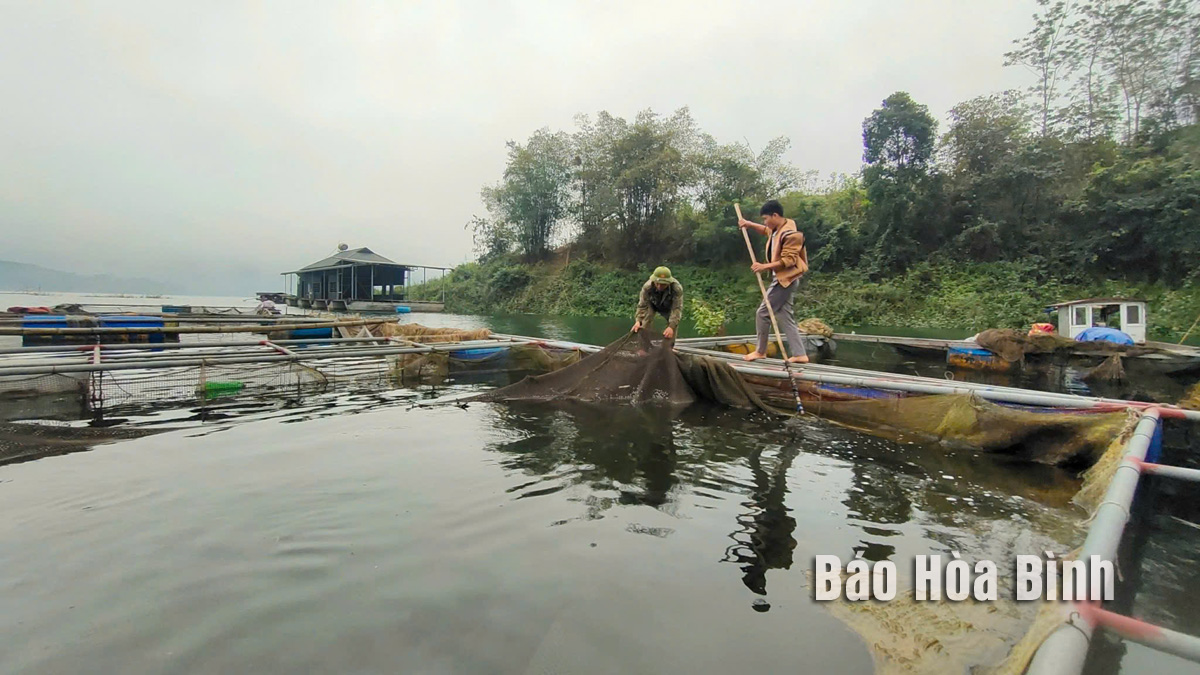



Thanks to social policy credit, farmers in Vay Nua commune (Da Bac district) have developed cage fish farming models, helping to increase their incomes.
Bui Van Tu’s family in Vanh hamlet, Yen Phu commune (Lac Son district) relied solely on farming, with unstable income. He recognised the potential of orange and pomelo trees in his garden but lacked the capital to invest in a more systematic and large-scale manner. With support from the district farmers’ association, he accessed a 150-million-VND loan from the Vietnam Bank for Social Policies. The funding became a crucial springboard, allowing his family to expand and invest more systematically in his orchard.
By the end of 2016, from a modest initial area, his family had expanded to 5 hectares of orange cultivation with nearly 2,400 trees, harvesting around 17 tonnes annually. This brought in nearly 800 million in revenue and about 500 million VND in profit. Once a low-income household, Tu’s family has risen to prosperity thanks to policy credit and effective farming practices.
The social policy credit, strengthened by the close partnership of the farmers’ associations at all levels, has become a driving force in poverty reduction and improving the livelihoods of their members. It has also reinforced farmers’ trust in the Party’s direction and the State’s policies and laws. The results are measured not only in economic gains, but also in social value - fostering farmers’ confidence in their association.
The farmers’ associations in the province have helped disseminate policies, guide farmers through loan applications, provide technical training, and build effective farming models to make the best use of loans. To date, the total entrusted loan balance from the Vietnam Bank for Social Policies managed by provincial farmers’ associations has exceeded 1.35 trillion VND, benefiting 25,676 households through 624 savings and loan groups. The majority of these groups operate effectively—reflecting both sound management and borrowers’ sense of responsibility in using loans for the right purposes.
Bui Duc Bien, Vice Chairman of the provincial Farmers’ Association, said the entrusting of social policy credit through the association is a key task it places great emphasis on. The thousands of billions of dong in outstanding loans and tens of thousands of supported households are not just numbers—they reflect how social policy credit serves as a truly effective lever, enabling farmers to invest in production, escape poverty, and work toward legitimate prosperity.
To ensure that the flow of social policy credit remains smooth and increasingly effective, the farmers’ associations at all levels have continuously improved the quality of entrusted lending, enhanced training for staff and the application of digital tools in management and monitoring. All these efforts aim to ensure that every loan reaches farmers and is used to its fullest potential, helping to build better and more prosperous lives, and truly realising the policy "leaving no one behind” right.